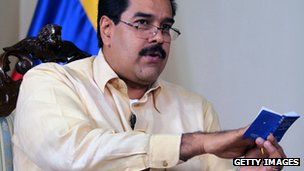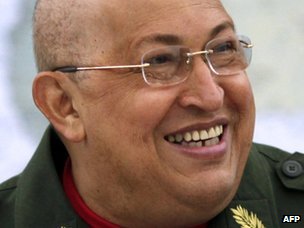englibertm
JF-Expert Member
- May 1, 2009
- 9,252
- 6,207
I SALUTE THE MAN ONLY CHE GUAVARA ULIYE BAKI

#U.s.a wakitaka kichwa chako wanakipata time yoyote! Chezea cia
 Venezuelan President Hugo Chavez underwent three operations for cancer and four courses of chemotherapy
Venezuelan President Hugo Chavez underwent three operations for cancer and four courses of chemotherapy
